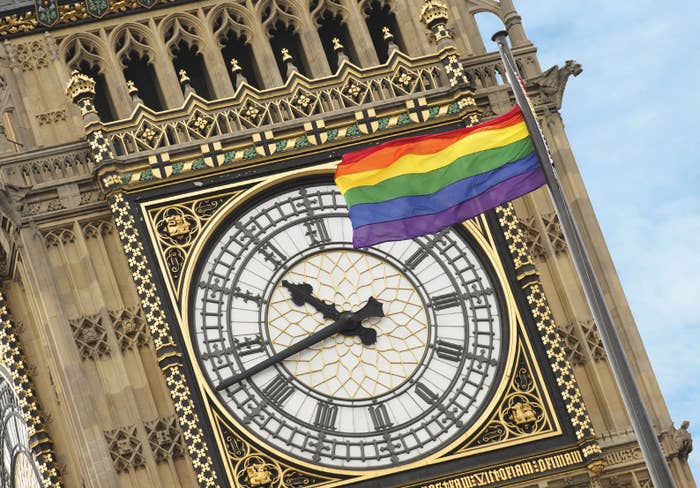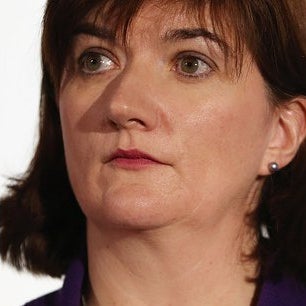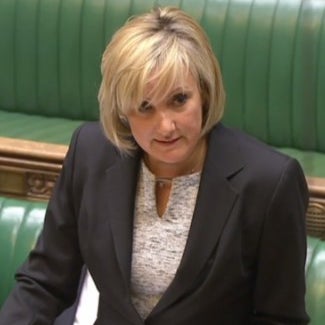
British transgender people can look forward to a future where legally changing their gender will be easier, where official documents including passports will be less likely to ask a person's gender, and where more will be done to tackle bullying and harassment, the government announced on Thursday.
In response to recommendations made six months ago by the House of Commons women and equalities committee, Nicky Morgan, the women and equalities minister, unveiled a raft of measures designed to tackle multiple inequalities for trans people.
Morgan has confirmed:
* The government will review the Gender Recognition Act 2004, which enables trans people to change the legal status of their sex but forces applicants to undergo intrusive questioning by a panel of experts before such a change is granted;
* Being transgender will no longer be deemed a mental illness by any public body, in particular the National Health Service (NHS);
* A review will be conducted into unnecessary demands for gender information on official documents. This will include passports. A government spokesperson told BuzzFeed News a "whole range of options will be looked at" so passports in particular can better and more easily reflect the gender of British citizens;
* A major survey into the needs and experiences of trans people in Britain – which will also seek to ascertain the numbers of trans people in the population – will be undertaken so that various government departments can better meet their needs. This year will also see the British Social Attitudes Survey include questions about attitudes among the general population towards trans people;
* NHS staff in gender identity services will receive more and improved training, to facilitate better treatment for transgender people;
* The government will work with universities to combat transphobic bullying in higher education.


Nicky Morgan (left) and Caroline Dinenage
Perhaps most radical among these measures will be the review of the Gender Recognition Act – a move that is likely to bring the UK more in line with Ireland, Malta, and Denmark, which do not require trans people to undergo surgery and other radical medical interventions before they can legally change their gender.
Although the government did not specifically outline what it expects the conclusion of the review will be, it is understood a self-declaration scheme or something similar is likely. Currently, trans people have to convince doctors and psychiatrists before documentation is changed.
"We must set the pace on this agenda and lead the way in better understanding and supporting our trans people," said Morgan. "That’s why I am delighted to announce that we will be reviewing the Gender Recognition Act – helping overturn an outdated system and ensure the transgender person’s needs are at the heart of the process."
Caroline Dinenage, minister for women, equalities, and family justice, added: "By reviewing the legal process of changing your gender, rethinking when and why we collect gender information, and working with the transgender community to better understand the problems they face, we take another vital step towards achieving true equality for transgender people.”
The measures were welcomed by Paris Lees, Britain's most prominent trans rights activist and journalist.
She told BuzzFeed News: "The Gender Recognition Act does need updating but that's not to do down the brilliant activists that worked for so many years to get that legislation in place. It has already started to look old-fashioned, and it's important the government looks into the act – most people in Britain find red tape and bureaucracy a nightmare to do anything, but you can multiply the difficulties by 10 if you're a trans person."

She explained: "Just getting a bank account or registering to vote, everything is made that much harder because you have to send in more documents, or come in in person and, essentially, prove you are who you say you are. So anything we can do to reduce the hoops trans people are expected to jump through in order to get on with their lives is a good thing."
A review of the need for gender information on official documents is particularly vital, said Lees, and could have wider-reaching, positive ramifications beyond the trans community.
"Radical feminists should be absolutely delighted and grateful to the trans community because they've been going on about abolishing gender for decades and it looks like we're finally making some headway with that," she said. "We know that the more polarised gender is in a society the greater the violence women face. So anything we can do to lessen gender segregation is good for everybody, but in particular for women."
Evidence gathering about both the needs and numbers of trans people, along with the attitudes they face from the wider public, is also crucial, said Lees.
"It's long overdue. Like every trans person I've faced ignorance and stupidity when I've been accessing services. We need to accept that society as a whole has been quite ignorant of this issue until now and it's time we did something about it because trans people aren't going anywhere."
